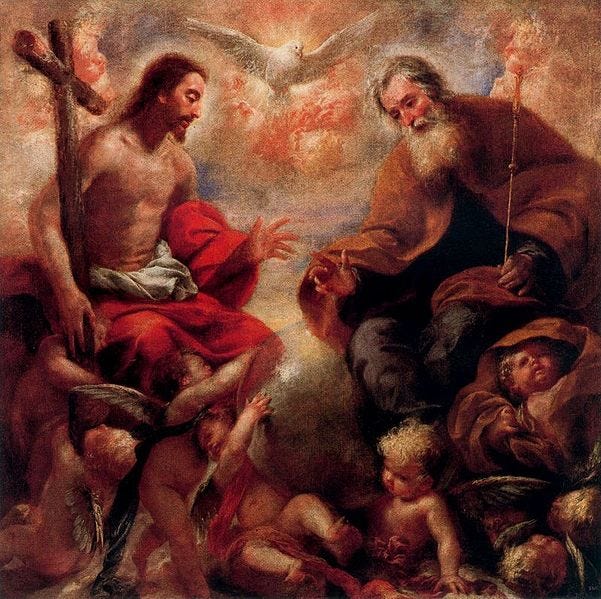Why the concept of the Trinity is meaningless
To take but one example, a Christian theologian may on occasion put forward and defend the trinitarian formula that 'God is three persons in one being.' And indeed many Christians may firmly hold this belief. But when exposed to the exacting criteria of meaning elaborated in the Tractatus Logico-Philosophicus, the trinitarian formula can be seen to lack sense. Language only has sense if its component parts (words) can be connected with reality, but in the case of such theological language we cannot even begin to connect those words with the objects found in the world, and thus cannot hope to compare theological propositions with reality in order to ascertain their truth-value (Tractatus Logico-Philosophicus 4.05). So it is not that the formula of the Trinity is false. No, it is entirely meaningless.
Brian R. Clack, An Introduction to Wittgenstein's Philosophy of Religion[1]
The Tractatus Logico-Philosophicus [2] is one of the seminal works of logic, and one of the most important works of philosophy of the 20th century. It was (and perhaps still is) quite fashionable to quote Wittgenstein in certain circles – circles in which I have traveled (either fortunately or un-). The problem is that most of the people that quote Wittgenstein have never read his actual original writings. Thus, many people who think they understand Wittgenstein, don't.
One complaint about Wittgenstein is that he had a habit of writing in aphorisms which allow for a lot of leniency in interpretation. This is true, especially of his later writing, all of which went unpublished until after his death.
However, the Tractatus Logico-Philosophicus – the only book he published in his lifetime – is quite clear, although very dense. It is composed of a series of numbered statements, all of which lead up to the famous conclusion: Whereof one cannot speak, thereof one must be silent.
Unfortunately, most people have no idea how he gets to that conclusion and thus it just sounds like generally good advice. He gets there by distinguishing between what aspects of things are legitimate targets for logical analysis and which are not. Those aspects of life which are not suitable for logic he refers to as “the mystical.”
Not to get too much into the weeds, but Wittgenstein's concept of the mystical lead to a major misunderstanding when a group of philosophers known as Logical Positivists adopted the Tractatus as their Bible (so to speak). They mistakenly think that Wittgenstein is disparaging anything “mystical” because they themselves do. In fact, Wittgenstein was very religious.
So, how are we to interpret the quotation above? (Although it is not from Wittgenstein himself, I agree that Clack has represented Wittgenstein's position on this quite well.) Towards the end of the Tractatus, Wittgenstein writes:
There are, indeed, things that cannot be put into words. They make themselves manifest. They are what is mystical.
Ludwig Wittgenstein — Tractatus Logico-Philosophicus, 6.522
The mistake that First Council of Nicaea and the First Council of Constantinople made was trying to codify (in words) that which fundamentally cannot be put into words. This makes the concept of the Trinity, whether written or spoken, meaningless.
[1] An Introduction to Wittgenstein's Philosophy of Religion (links to Amazon)
[2] Tractatus Logico-Philosophicus (links to Amazon)



